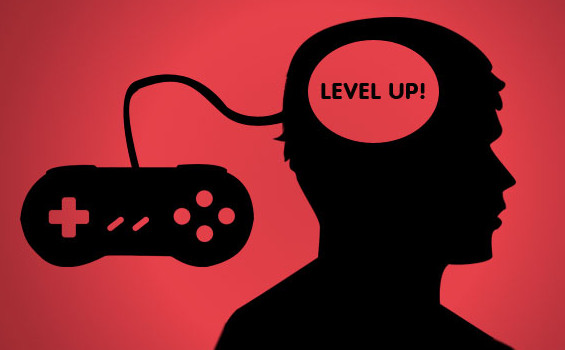Pretty Posts
Improvements in Audio-Visual Stimuli, Attention
and Executive Functionality
The evolution of video games was met with tremendous skepticism from concerned parents, educators, and psychologists. The prevailing view was that young minds would be negatively impacted by the hyper-stimulation and intensity of monotonous gameplay. Parents lamented the fact that their children were not outdoors interacting with other children, but were confined to their bedrooms on Nintendo Wii, PlayStations and Xbox contraptions. The overriding fears were addiction and abnormal psychological development. In fact, to this day there are people who believe that the video game culture is responsible for the maladies affecting teens. It is a stretch of the imagination to link video games to poor social skills development, perhaps even autism. However, the pervasiveness of the Internet of things all but assures that everyone will be affected by the interconnectedness of the World Wide Web. Does this mean that we all suffer from poor social skills, isolation and detachment?
The Developmental Conundrum: Gamers Have an Advantage
Studies conducted by C. Shawn Green, Daphne Beverley and Adam Eichenbaum appear to contradict the old-school views on video games. The researchers published their study in the American Journal of Play in 2014. Now, a groundswell of support is growing in favour of video games providing significant stimulus in the form of cognitive benefits. These pertain to things like memory, decision-making processes, mental acuity, responsiveness, attention and multitasking abilities. Viewed from this perspective, it is clear that the hyper-stimulation of video games in fact enhances responsiveness and awareness. Players may be withdrawn from reality when engaging in these types of entertainment pastimes, but their senses are fully directed at the tasks at hand. When compared to non-gamers, the evidence tends to suggest that gamers outperform non-gamers on many levels. The findings do not prove or disprove superiority with either side. If anything, they confirm that gamers have acquired a unique set of skills that non-gamers have yet to learn. Does this make them more developed or less developed than one another?
Video games require assertiveness, strategy and rapid decision-making thought processes. Players who advance through video game levels are better suited to executive decision-making processes. They act and react quickly and effectively. This is a skill that carries over into real life decision-making processes. It has been stated that dyslexia is derived from visual attention disorders. A research paper indicated that dyslexic children who play 12 hours of video games improved their dyslexic scores on phonology and reading. The research was published by Franceschini et al 2013. Games that require focus on multiple moving objects at the same time had a positive impact on the attention spans of players. To a lesser degree, strategic games like multiplayer online poker can fine tune a person’s ability to focus on multiple variables simultaneously. Not only must players take heed of their hole cards, the community cards (Flop, Turn and River), but they must also watch the actions and interpret the body language of other players at the table.
This is enhanced with live streaming poker games where players can immerse themselves in a virtual poker tournament. Poker straddles the line between a casino-style game and a strategy game, and advocates are arguing that it should be considered a strictly strategy-based game owing to the skill required. Consider that psychology is an integral component of bluffing in poker. Players must learn to identify, recognize and interpret body language, behaviour and have situational awareness. These skills are learned on the field of play – and they serve players well off the rail as well. A body of literature now presents a compelling argument against video games being inherently bad for players. We now know better. Fighter pilots train on simulators, chess champions simulate strategies in the virtual arena, and poker hotshots routinely play poker online to sharpen their skills. All of these activities are geared towards enhancing real-life performance, not detracting from it.






Leave a Reply